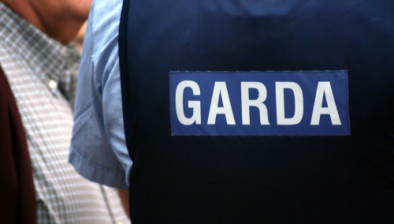Coronial system is ‘not fit for purpose’ and requires root-and-branch reform

Professor Phil Scraton
Ireland’s coronial system is “not fit for purpose” and root-and-branch reform is decades overdue, according to a damning new report.
Professor Phil Scraton and Dr Gillian McNaull, both of Queen’s University Belfast, have made more than 50 recommendations for reform following research based on interviews with bereaved families, solicitors, researchers, investigators and coroners.
These include measures to ensure the bereaved are at the centre of the process; professionalising and fully funding the coronial service while ensuring its independence from An Garda Síochána; introducing minimum human rights standards of practice; and the avoidance of unacceptable delays.
The Left Out in the Cold report, produced for the Irish Council for Civil Liberties (ICCL), also includes a seven-point Charter for the Bereaved, aimed at putting bereaved families “front and centre of the process”.
Speaking at a launch event this morning, Professor Scraton said: “One of the things that strikes me at the opening of any inquest is when the coroner states: ‘This inquest is your inquest. This is an inquest for you to find out in detail what happened in terms of the death of your loved one.’ I’m sad to say that, across the board, this reality rarely happens.
“We have seen major progressions in England and Wales recently and the appointment of coroners who are committed to identifying the needs and establishing what is important in terms of the families, their needs, their significance and the future – learning from those cases. That is beginning to happen.
“But our research in Ireland suggests we are a long way from realising that. That is the point of the report … bereaved families must have confidence in the system that at present is not there.”
Dr McNaull told the launch event that the report “is not pitting coroners against families”, stressing that they found “remarkable coincidence in what coroners and families need”.
“That was one of the very positive aspects of the report for us, that stakeholders – families, lawyers and coroners – often consistently recognised that there are significant issues with the current model and unanimously called for reform,” she added.
Liam Herrick, ICCL executive director, said: “In 2000, an independent review group said nothing but root-and-branch reform would fix these issues. Successive governments have tinkered round the edges since then, compounding the loss of anyone who has interacted with the system in the past 21 years.
“Government must act quickly and decisively to reform the system now and protect the rights of the bereaved.”
The ICCL research received funding from the Irish Human Rights and Equality Commission through its human rights and equality grant scheme.
The project was launched in 2019 with Dr Vicky Conway of Dublin City University (DCU) as lead investigator, supported by Professor Scraton, widely known for his work on the Hillsborough Independent Panel.
It was suspended due to the ill-health of both researchers and resumed in August 2020 with Professor Scraton as lead investigator, supported by Dr McNaull.








